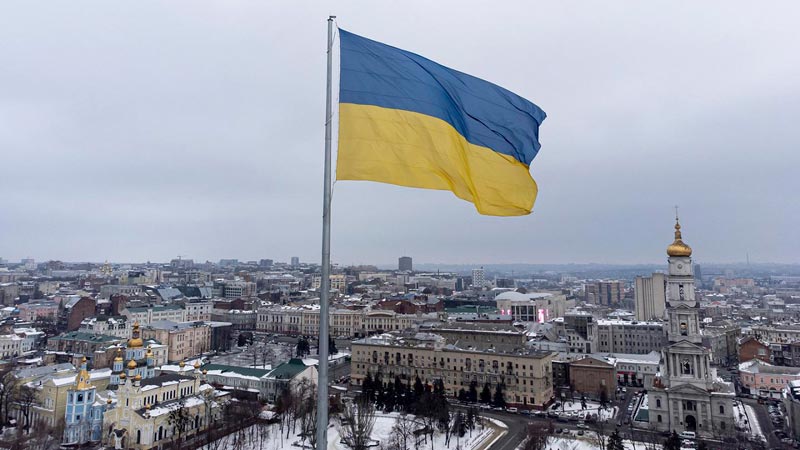
 By Natali Moss
By Natali Moss
And government agencies have special civic responsibility on the cultural front. Exclusion of Russian content is an expected and adequate response to everything that the enemy is. It is an awareness that Russian culture is a colonial culture that has deeply administered rust to our being. The wave of cultural resistance to a new wave of powerful resistance to everything related to the aggressor state began on February 24.
In the first days of a full -scale invasion of Russia in Ukraine, Ukrainian theater, music groups, cultural and education institutions began to abandon the names containing the word "Russian", the names of the Russians in the names of these institutions, from the repertoire of Russian origin. On February 24, the word "Russian" was withdrawn by the decision of the staff of the Nikolaev Academic Art Drama Theater. Statement of changing the name of the National Drama Theater.
Lesya Ukrainka, who in Kiev, appeared on the site of the theater on February 28, signed by the CEO - artistic director Mikhail Reznikovich, and on March 2, the word "Russian" was removed from the name of the Odessa Regional Academic Drama Drama Theater. Kharkiv Academic Russian Drama Theater named after AS On March 1, Pushkin published a statement that it was decided to remove the name of the Russian poet and the word "Russian" from the name of the theater.
The Kharkiv Regional Council approved the renaming of theater on December 24, now its name is Kharkiv Academic Drama Theater. Unfortunately, not all professionals whom Ukraine consider cultural ambassadors supported the Boycott of Russian culture during the war. Particular discussion is still causing the music of Russian composers Peter Tchaikovsky or Modest Mussorgsky.
I sincerely do not understand how, when justifying myself, some of our famous musicians compare the prohibition of Tchaikovsky's music with the conditional ban on "Mendeleev Table": they say, music, like exact and natural sciences, has no nationality. It does not. Works of art are born specific people in a particular historical and social context. And artists, writers, composers broadcast their position.
Those narratives that are sewn in the message of the works of the arts of these authors form the consciousness of the Russians, in particular, the belief in their own God -election, the special path of Russia and other irrational statements that negate the right of other peoples to self -determination in the territory of the imaginary "Russian world".
At the beginning of September 2022, all dots over "and" set out by the decree of Russian dictator Vladimir Putin "The Concept of Humanitarian Policy of the Russian Federation abroad". According to this document, the bearers of "Russian world", symbols of Russia and Russian culture are writers Lev Tolstoy and Fedir Dostoevsky, composers Petro Tchaikovsky, Dmitry Shostakovich and others.
Thus, the popularization of the personalities, the performance of the works of those known by American researcher Eva Thompson calls the "troubadours of the empire", during the present war is interpreted as frank propaganda of the enemy culture. The window of our theaters has no repertoire famine. And in the well -deserved ignoring of Russian culture there is a profit for cultural development of both Ukraine and the general world.
Excessive admiration for the "grandeur of Russian culture", artificially planted for centuries, did not give us, Ukrainians, the opportunity to devote themselves to a deeper study and development of native culture and the discovery of other cultures. We have everything to recover.
For example, before the war, there was a certain fixation on the performance of certain works of Russian origin, such as the ballet marathons of the "Nutcracker" in different countries in the New Year and Christmas period. Everything "wrapped" in the "tradition", but artificially limited us and forced us to endlessly chew the same "cultural gum".
The full -scale Russian invasion helped to find a brilliant alternative: the National Opera of Ukraine offered an updated ballet performance "Snow Queen". The ballet fairy tale was based on the work of the same name of the Danish writer Hans Christian Andersen, and the musical component in the context of the present war was changed to the compilation of the works of composers Edward Grieg, Jules Massne, removing fragments of works by Russian authors.
This successful Ukrainian cultural product will soon be able to evaluate abroad. The Lviv National Opera for New Year's holidays offers the ballet "Snow White and the Seven Dwarfs" Polish Composer Bogdan Pavlovsky, the opera "Lis Nikita" of the modern Ukrainian composer Ivan Heaven, traditional for Europe Strauss concerts.
State cultural institutions should assist the process of "gentle Ukrainization", establish the balance of Ukrainianness and the presence of European, world culture in our mental field. Because, as the artistic director of the Ivano-Frankivsk National Academic Drama Theater Rostislav Derzipilsky drew attention: "Derusification must first touch our brains and souls. " Incidentally, on February 24, eight performances of Russian authors were expelled from the repertoire of the Ivano-Frankivsk Theater.
The terrible war has opened a paradoxical window of opportunity to tell the world community about our ancient original rich culture without Russian context. For example, Ukrainian music and Ukrainian performers, our writers and artists today, while performing at different sites of the world, have a powerful emotional impact on the foreign public, and their talents attract global attention to our country.
And instead of Petro Tchaikovsky's pause, the music of Ukrainian geniuses is heard in the most prestigious halls: Boris Lyatoshynsky, Mykola Leontovich, Valentin Sylvestrov, Oleg Kiva, Zoltan Almashi, Miroslav Skoryk, Victoria Poleva, Yevgeny Stankovich. Joint efforts, the Ukrainian cultural space is persistently cleared of Russian content. We observe breakthroughs and progress in the perception of Ukraine in the cultural dimension. Important steps have already been taken.




















Všetky práva vyhradené IN-Ukraine.info - 2022